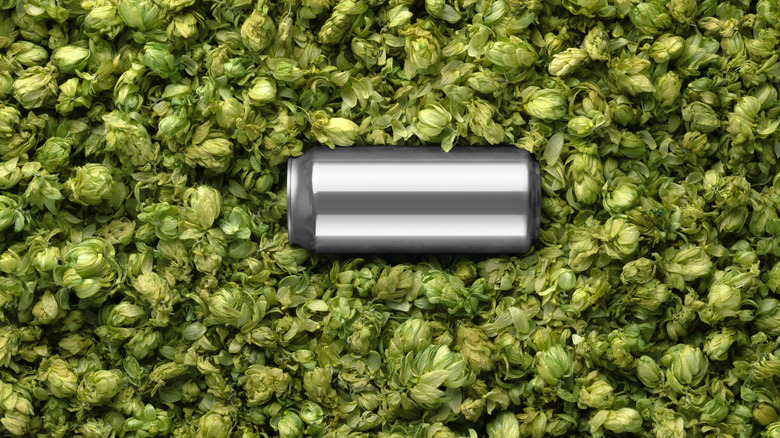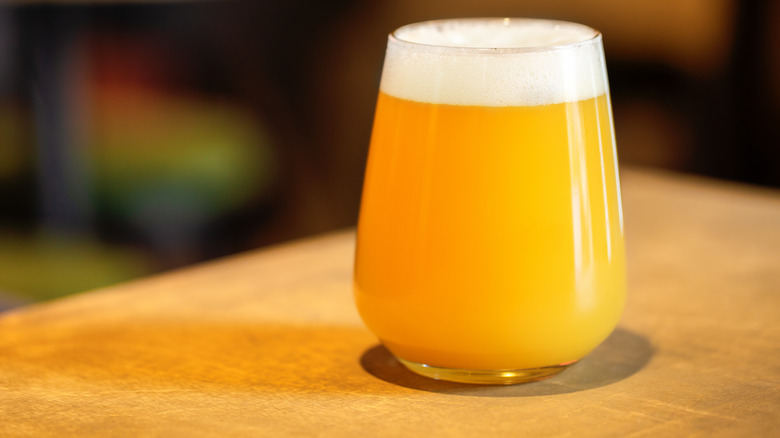How The East India Trading Company Made IPAs Popular
Ever since the launch of the craft beer movement in the U.S., nearly every American brewery — from your local town's tiny brewpub to the behemoth producers of the beer world — has offered up at least one IPA (short for India Pale Ale) if not multiple versions of the style. It took a while for IPAs to gain a foothold in our country, but now they appear to be here to stay.
One place IPAs have endured for a long time is Britain, where the style was invented. A common origin story relates that the IPA was born out of necessity to supply British troops serving in India in the 18th and 19th centuries with a beer that wouldn't spoil over the half-year-long oceanic journey, as darker beers, with their higher sugar content, were susceptible. Because nothing is worse for troop morale than awful-tasting beer.
The Brits worked around this problem by adding extra hops to pale ale in the beer barrels they shipped since hops act as a preservative. These hopped-up beers developed a bitter taste that many people associate with certain types of strong IPAs today.
However, this story is disputed, with some pointing out that certain English cask ales sent to India could last nearly a year before going bad and noting that porters could sometimes survive the trek in drinkable condition.
A case of being in the right place at the right time
Less debated is that the IPA was popularized by the East India Company, a British mega corporation from the apex of the royal empire that used slave labor and had its own army, essentially operating as its own independent country, and which has its equivalent in the modern-day Amazons and Googles of the world. A brewer named George Hodgson, whose Bow Brewery was situated in a prime location next to the East India Company's dock, exported his hopped-laden IPA beer to India through this titan that held a virtual monopoly over trade.
Hodgson set up a policy in which he sold casks of beer on 18-month credit, so payment wouldn't be required until the EIC's ships returned from India with their holds full of trading goods that would earn them some serious scratch. Not surprisingly, this credit system went over well with traders, but his IPAs also proved to be a big hit with the British army in India. So much so that, according to Smithsonian Magazine, Hodgson's sons eventually broke off the brewery's partnership with the EIC and began shipping the IPAs out themselves, effectively shunning the marketing and distribution reach of what amounted to the Anheuser-Busch InBev of its day.

